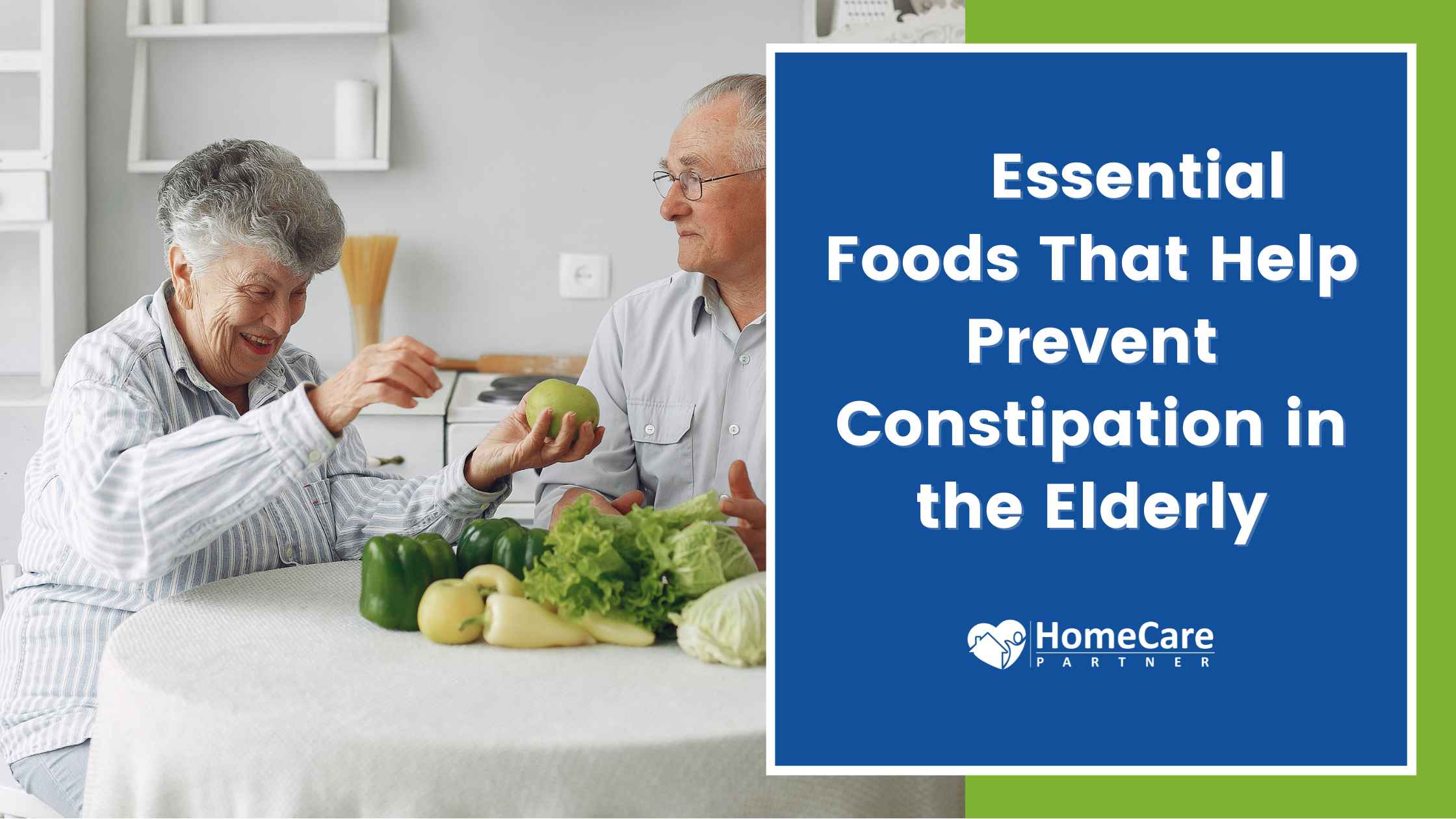


Our system undergoes multiple changes as we age; the digestive system is no exception. Proper digestion and bowel movements are increasingly important in maintaining our health and well-being. However, constipation can be a common issue for older adults, leading to discomfort and serious health complications.
Constipation is having infrequent bowel movements, difficulty passing stool, or experiencing hard, dry stool. While there can be various causes of constipation, such as medication side effects or underlying health conditions, the root causes often include a lack of fiber, dehydration, and a sedentary lifestyle.
This blog dives into the best foods for constipation in the elderly that can help keep the bowels moving smoothly!
Constipation can be an unpleasant and inconvenient condition, especially for older adults. However, several delightful and wholesome foods can cure constipation and encourage regularity. Let's look at some of the great foods for constipation in the elderly and the wonders they offer!
Fruits with a high fiber content, such as berries, apples, and pears, can be wonderful cures for elderly constipation. In addition to being flavorful, these fruits are also dense with fiber, which can help with frequent bowel motions and digestive wellness.
Broccoli, lettuce, spinach, and kale are high in fiber, vitamins, and minerals, which may assist with constipation in the elderly. These veggies are essential to any senior person's diet since their fiber aids in encouraging regular bowel movements, and their vitamins and minerals can improve overall intestinal wellness.
Popular whole grains such as brown rice, whole wheat, and quinoa bread are great sources of fiber that can aid older people who are constipated. Whole grain fiber keeps bowel motions soft and simple, promoting regular stool production.
Two high-fiber legumes, beans and lentils, make up a great addition to the diets of elderly persons. The fiber in legumes promotes regular bowel movements and can help with constipation signs and symptoms. Legumes can help your digestive system and are a good source of protein.
Nuts and seeds are a terrific snack for the elderly who are constipated. They are abundant in fiber, good fats, and minerals that help support a healthy digestive system and encourage regular bowel motions. They may also be added to meals or eaten as a separate snack to help relieve constipation.
Consuming probiotic-rich foods like yogurt, kefir, and sauerkraut can help older people alleviate constipation. In addition to aiding regular bowel movements and lowering inflammation, probiotics are beneficial bacteria that can help establish a healthy gut microbiome.
Various foods can cure constipation, but some might worsen it. Avoid eating the following foods to help cure constipation—
Processed foods are often high in fat, sugar, and salt and low in fiber, contributing to constipation. Avoid processed foods such as fast food, packaged snacks, and frozen dinners.
Red meat is hard to digest and may cause constipation since it is heavy in fat and poor in fiber. Limit your intake of red meat and choose lean proteins like tofu, fish, and chicken alternatively.
Dairy products, particularly if lactose intolerant, can cause constipation in certain people. Limit or avoid dairy items with high-fat content, such as cheese, ice cream, and whole-milk products.
It's increasingly important to pay attention to our diets and ensure we get the nutrients needed to stay healthy. Here are some tips for encouraging a healthy diet in the elderly—
#1: Experiment with New Flavors
Taste buds change as we age, which can make food less appealing. Encourage elderly individuals to try new flavors and spices to keep their meals interesting and flavorful.
#2: Make Food Attractive to the Eye
The attraction of food may be significantly influenced by how it is presented. Create aesthetically appealing food combinations, utilize garnishes, and arrange meals on colorful plates.
#3: Providing Easy-to-Eat Finger Foods and Snacks
Making and eating meals can be challenging for many older people, especially if they have mobility problems or trouble using utensils. For this reason, offering finger meals and simple snacks can be a great way to promote good eating habits.
#4: Encouraging Small Meals
Encouraging small, frequent meals throughout the day can help elderly individuals maintain a healthy diet while feeling more in control of their eating habits.
Discussing the concerns of your elderly loved ones with the appropriate care provider is critical to help them lead a joyful life! Give your loved ones the care and love they deserve with Home Care Partner - your dedicated in-home service provider. Contact us today and bring peace of mind to your family.

Home Care Partner wants you to be confident in choosing us. We want to show that our care is unmatched!

Get 20% OFF a week's worth of care!
We want to show you that our care is unmatched.